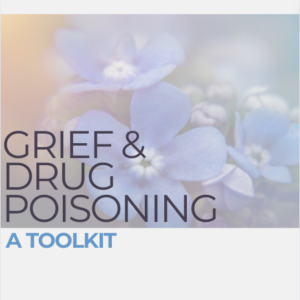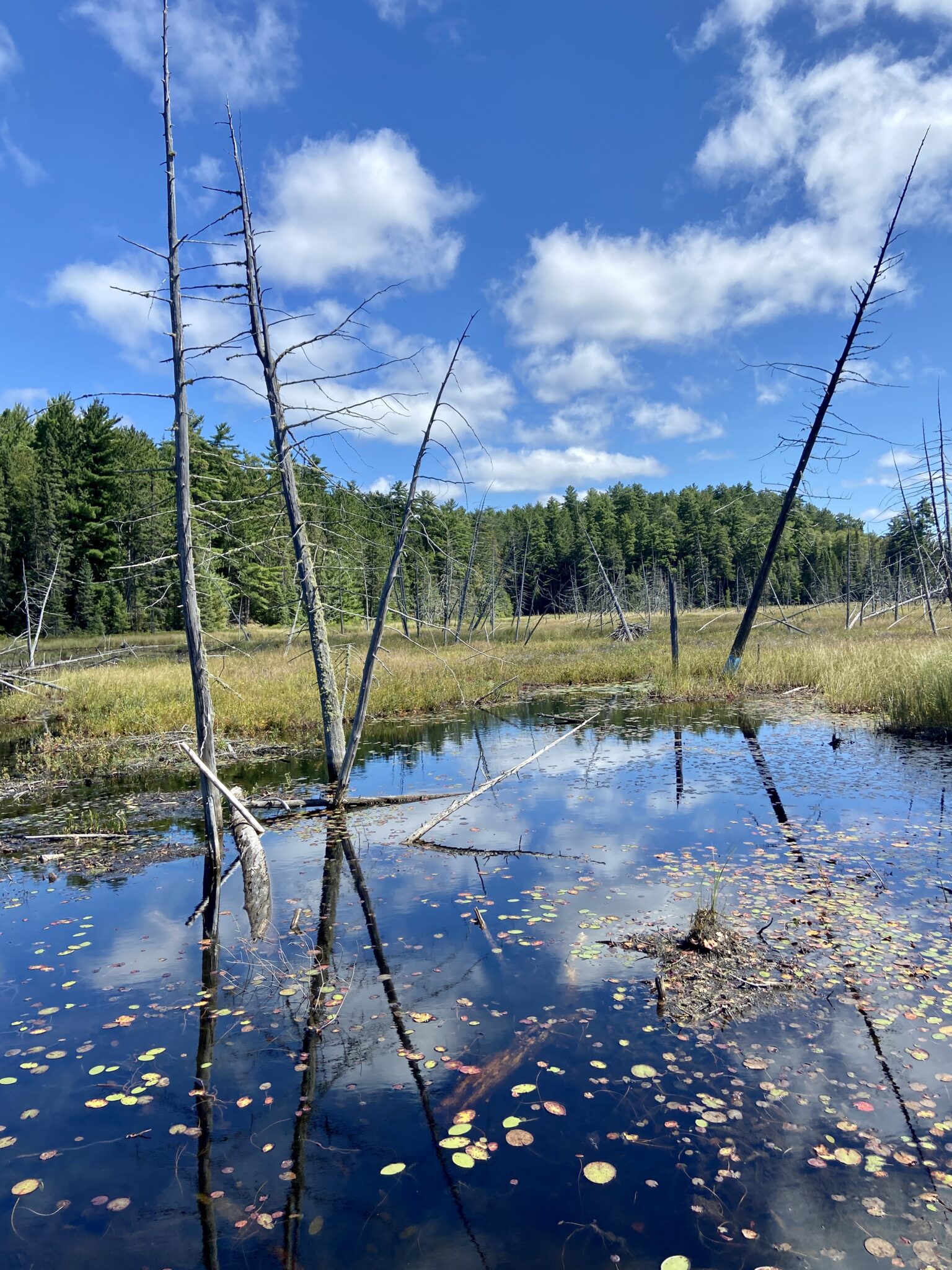Posts Tagged ‘drug poisoning’
Grief & Drug Poisoning Toolkit [Free Downloadable PDF]

Navigating life, death, and loss can be overwhelming. This toolkit is designed by mental health professionals and contains information about grief, different types of grief we may experience, gentle reminders on how to move through grief, as well as tips for those who may be supporting someone in their life who is grieving.
This toolkit also reflects on how we support grief in communities of people who use drugs and friends, family, and professionals who work with people who use drugs. The tools to come together and honour our collective experiences and to build the resources for further support.
Thoughts on International Overdose Awareness Day 2023
By Jessica Milette, MSW/RSW
August 31 is International Overdose Awareness Day, a day where we honour and remember those who have died by drug poisoning.
We lead multifaceted lives, and the deaths of those we love who have died by drug poisoning contain multitudes. The death of a loved one can bring intense grief, shock, anger, shame, or guilt. People who use drugs, and those who love them that they leave behind, face stigma in North America’s dominant, settler culture.
It is this stigma of drug poisoning deaths, the othering of another’s valid grief, that places a barrier to one of the greatest things we can offer to ourselves and each other: connection. Those who have died by drug poisoning are parents, children, siblings, aunts, and friends. Those who welcomed us with open arms for an embrace, those who worked alongside us, and those who have faced much suffering and marginalization.
Grief can be an isolating experience; having opportunities to heal in community and share the stories of those we love who have died are so important. It is never about HOW they died, but WHO they are. Saying their name out loud, listening to their favourite music, and sharing stories of joy can help. Sometimes we need to share our stories of frustration, guilt, or sorrow with others who have experienced the death of a loved one.
We don’t have to be impacted by the death of a loved one by drug poisoning to support others in our community who are in pain. Grief and the losses we face cannot be fixed. We can feel helpless in the face of seeing someone we care about in the depths of grief. One of the biggest things we can do as supporters is to not shy away from grief – those grieving can feel supported when others ask them about their person or use their name in conversations. Sometimes telling grievers to “call me if you need anything” can feel overwhelming. By offering specific, practical support like mowing their lawn or dropping off groceries gives grievers a choice. If they do not accept the support you offer, be open to listening to what support they do need as what you may have found helpful might not be the type of support they need. A helpful phrase I’ve used to communicate to people in my life when I need some grief support, or when I’ve offered support to those in my life grieving has been: “Would you like help (with a task or to brainstorm), would you like to be heard (where I will sit and listen without judgment and sit with you in your grief), or would you like a hug (sometimes we need a hug through a tough moment)?”
In addition to these personal losses, we also face these losses as a community. State of Emergencies declared by public health authorities due to the drug poisoning crisis are more common than they were before. The Canadian Healthcare system is still reeling from a pandemic and is unable to meet the current demands to address this health crisis. Drug poisoning deaths are highest for those in our community that face high levels of marginalization, oppression, and stigma despite human beings’ universal needs for safety, connection, community, and care..
People who use drugs, like all human beings living on Stolen Land on Turtle Island deserve access to care, community, connection, and safety in all areas of their wellbeing. Harm Reduction is an important but often underappreciated pillar in Canada’s healthcare system that offers safety, community, compassion, and care while keeping the dignity of the person who uses drugs at the heart of this work. Harm Reduction workers create community for those who may feel isolated or have been excluded from other communities they belong to due to their drug use. They provide spaces for people to learn new ways to be in relationship with drugs, how to be safe when using drugs, and getting connected to other supports for their whole health. Not all drug use is inherently problematic, and harm reduction support can look like many things: from helping those wishing to be abstinent from drug use to helping those who are still using drugs to use them in safer ways.
Just like we come in community to honour those who have died, through community we can continue to hold systems accountable and advocate for equity, justice, safety and health for all.
Christian – Denial and grieving
Christian – Denial and grieving
Christian discusses what happens after members of the community die from drug poisoning and how it’s OK for grief to be messy
Christian – Grieving the whole person
Christian – Grieving the whole person
Christian talks about how we choose remember people when there has been a loss to drug poisoning
Christian – My process in grieving
Christian – My process in grieving
Christian explains his grieving process and how it’s important to let people in, the power of community, and having a team that makes him feel loved and cared for
Christian – Grieving those who died of drug poisoning
Christian – Grieving those who died of drug poisoning
Christian talks about grieving, stigma and dying from drug poisoning
Christian – Grieving spaces
Christian – Grieving spaces
Christian talks grieving spaces and people coming together when grieving
Christian – Language around those pushed to the margins
Christian – Language around those pushed to the margins
Christian talks about how people who are pushed to the margins are not discussed as part of our community and how we need to include them. As a community how do we care for our neighbours and how do we mourn the loss of our neighbours
Christian – Supporting people who may die
Christian – Supporting people who may die
Christian talks about going from zero overdoses to 50 in a matter of months and how to help people who may die
Joyce – Walking beside people who are stuggling with addiction
Joyce – Walking beside people who are stuggling with addiction
Joyce explains why it so important to help people who are struggling with addiction
Joyce -The pandemics impact on drug poisonings
Joyce -The pandemics impact on drug poisonings
Joyce talks about drug poisonings during the pandemic
Christian – Autonomy for the homeless
Christian – Autonomy for the homeless
Christian discusses those who are unhoused and how they want a space that is theirs and how we need to take that seriously especially when it comes to grief

